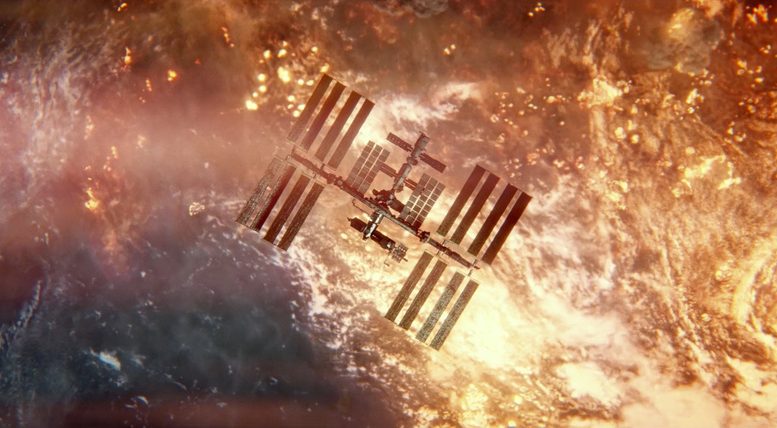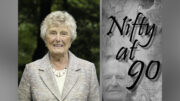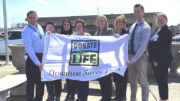The Associated Press
With war raging in Ukraine and U.S.-Russia relations below freezing, the Cold War movie may be alive, again, too.
After decades when fears of mutual destruction and nuclear fallout filtered into movies from “Fail Safe” to “WarGames,” anxiety over current Russian-American geopolitics plays a provocative role in the new space thriller “I.S.S.”
Gabriela Cowperthwaite’s film, opening in theaters Friday, is set aboard the International Space Station, which the opening credits note is a symbol of post-Cold War U.S.-Russia collaboration. The astronauts and cosmonauts are a friendly band of fellow scientists, but that harmony is significantly challenged when bombs begin falling across the Earth’s surface. Gazing down below, bioengineer Kira Foster (Ariana DeBose) initially thinks the bright flashes all over North America are volcano eruptions.
It’s an intriguing premise that “I.S.S.” can’t translate into a coherent thriller. But it’s striking that exactly 60 years after “Dr. Strangelove or: How I Learned to Stop Worrying and Love the Bomb,” we are again offered the chance to sit in the dark and contemplate the horror of a speculative U.S.-Russia war. History may not repeat itself, but movie genres might.
One reason why “I.S.S.” isn’t successful, though, is that it feels more cribbed from past Cold War movies than it does any current reality. It was penned by Nick Shafir, whose script landed on the Black List in 2020, several years before the war in Ukraine began. And its chamber-piece framework — the space station is essentially the film’s sole setting — carries over many of the dynamics that defined Cold War movies of the late 20th century. Among the three Americans and three Russians on board are hawks and doves; each nationality mirrors the other.
Kira is the new arrival at the space station. Nearly everything is shared, she’s told, and talking politics is a no-no. “We definitely don’t talk about what’s going on down there,” she’s told. From space, it’s said, there are no visible borders on the planet below.
Commander Gordon Barrett (Chris Messina) heads up the American group. It’s he who gets an urgent transmission from Houston after the war has started. It’s mildly charming to think that amid nuclear fallout, someone will be immediately concerned with the fate of a floating science lab. (“Abort the experiments!”) But the message also supplies an ominous new mission: Take control of the space station.
A new suspicion grips the I.S.S. The Russian contingent — Weronika (Masha Mashkova), Alexey (Pilou Asbaek) and Nichola (Costa Ronin) — likewise grows more wary of their cohabitants. Allegiances get tested, particularly in the case of Gordon and Weronika, who seem more than colleagues. Cowperthwaite ( “Blackfish,”“Our Friend” ) doesn’t have the knack for close-quarters suspense that might have led to something more like a low-budget, geopolitical “Gravity.” But she’s also not done favors by the script’s clumsy twists. Is a zero-gravity repair mission outside the space station the best thing for Gordon to do moments after the onset of global warfare?
But “I.S.S.” will suffice as a high-concept B-movie. And given how much mileage the movies once got out of Soviet villains, it may just be the beginning of a new cycle. It’s notable that of the film’s plot machinations, all-out warfare wasn’t the least implausible invention.
“I.S.S.,” a Bleecker Street release, is rated R by the Motion Picture Association for some violence and language. Running time: 95 minutes. Two stars out of four.







































